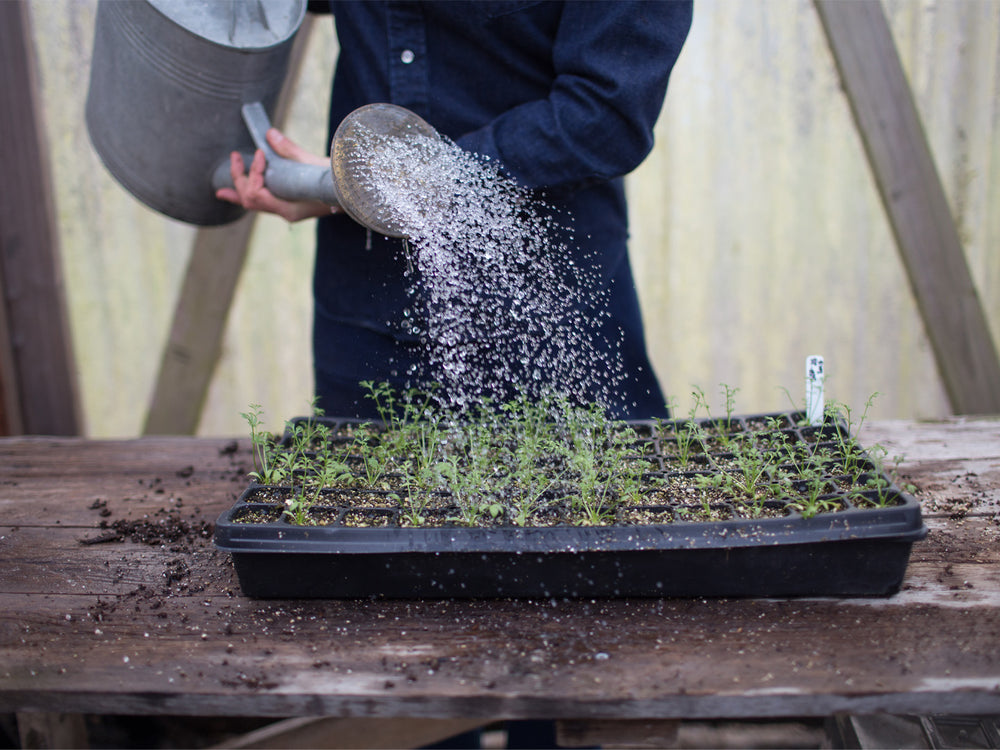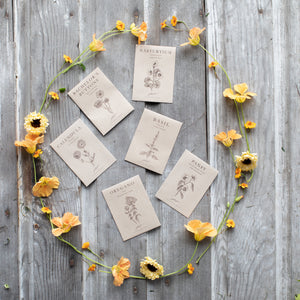Sweet Rocket ‘Pale Lavender’
Hesperis matronalis
Description
We’ve been growing this hard-to-find variety for many years and it’s one of the most beautiful biennials that blooms on our farm each spring. Towering stems are loaded with billowy flowers that are well loved by pollinators. This old-fashioned favorite is the palest lavender-mauve with a slightly darker eye. Blooms have a sugary candy scent that lingers in the evening air.
Please note: Sweet rocket is considered invasive in some areas. If you’re unsure whether or not it’s invasive where you live, a simple web search will help you find the information you need.
Details
Height: 36 to 48 in
Site: full sun
Days to maturity: 330 to 360 days
Plant spacing: 12 in
Pinch: not necessary
Seed Sowing & Growing Notes
Sow seed indoors in trays from late spring to early summer and transplant seedlings into the garden at least 6 weeks before your first autumn frost. Plants will overwinter in the garden and bloom the following spring.
Harvesting/Vase Life
Details
Description
We’ve been growing this hard-to-find variety for many years and it’s one of the most beautiful biennials that blooms on our farm each spring. Towering stems are loaded with billowy flowers that are well loved by pollinators. This old-fashioned favorite is the palest lavender-mauve with a slightly darker eye. Blooms have a sugary candy scent that lingers in the evening air.
Please note: Sweet rocket is considered invasive in some areas. If you’re unsure whether or not it’s invasive where you live, a simple web search will help you find the information you need.
Details
Height: 36 to 48 in
Site: full sun
Days to maturity: 330 to 360 days
Plant spacing: 12 in
Pinch: not necessary
Seed Sowing & Growing Notes
Sow seed indoors in trays from late spring to early summer and transplant seedlings into the garden at least 6 weeks before your first autumn frost. Plants will overwinter in the garden and bloom the following spring.
Harvesting/Vase Life
Sources
How to Grow

Winter Mini Course: Seed-Starting 101
Learn how to start flowers from seed in this three-part video series
In this free video series, you’ll learn everything you need to know to successfully start flowers from seed, including all of the necessary supplies, step-by-step instructions, special tips and tricks, and how to create a simple indoor seed-starting area.















